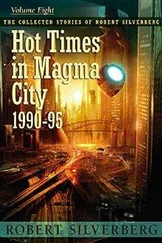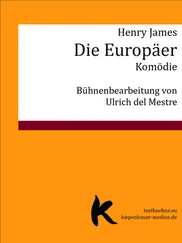Henry James - Roderick Hudson
Здесь есть возможность читать онлайн «Henry James - Roderick Hudson» — ознакомительный отрывок электронной книги совершенно бесплатно, а после прочтения отрывка купить полную версию. В некоторых случаях можно слушать аудио, скачать через торрент в формате fb2 и присутствует краткое содержание. Жанр: unrecognised, на английском языке. Описание произведения, (предисловие) а так же отзывы посетителей доступны на портале библиотеки ЛибКат.
- Название:Roderick Hudson
- Автор:
- Жанр:
- Год:неизвестен
- ISBN:нет данных
- Рейтинг книги:3 / 5. Голосов: 1
-
Избранное:Добавить в избранное
- Отзывы:
-
Ваша оценка:
- 60
- 1
- 2
- 3
- 4
- 5
Roderick Hudson: краткое содержание, описание и аннотация
Предлагаем к чтению аннотацию, описание, краткое содержание или предисловие (зависит от того, что написал сам автор книги «Roderick Hudson»). Если вы не нашли необходимую информацию о книге — напишите в комментариях, мы постараемся отыскать её.
Roderick Hudson — читать онлайн ознакомительный отрывок
Ниже представлен текст книги, разбитый по страницам. Система сохранения места последней прочитанной страницы, позволяет с удобством читать онлайн бесплатно книгу «Roderick Hudson», без необходимости каждый раз заново искать на чём Вы остановились. Поставьте закладку, и сможете в любой момент перейти на страницу, на которой закончили чтение.
Интервал:
Закладка:
Rowland could honestly reply that this seemed pregnant sense, and he offered Mr. Striker a friendly hand-shake as the latter withdrew. But Mr. Striker's rather grim view of matters cast a momentary shadow on his companions, and Mrs. Hudson seemed to feel that it necessitated between them some little friendly agreement not to be overawed.
Rowland sat for some time longer, partly because he wished to please the two women and partly because he was strangely pleased himself. There was something touching in their unworldly fears and diffident hopes, something almost terrible in the way poor little Mrs. Hudson seemed to flutter and quiver with intense maternal passion. She put forth one timid conversational venture after another, and asked Rowland a number of questions about himself, his age, his family, his occupations, his tastes, his religious opinions. Rowland had an odd feeling at last that she had begun to consider him very exemplary, and that she might make, later, some perturbing discovery. He tried, therefore, to invent something that would prepare her to find him fallible. But he could think of nothing. It only seemed to him that Miss Garland secretly mistrusted him, and that he must leave her to render him the service, after he had gone, of making him the object of a little firm derogation. Mrs. Hudson talked with low-voiced eagerness about her son.
"He 's very lovable, sir, I assure you. When you come to know him you 'll find him very lovable. He 's a little spoiled, of course; he has always done with me as he pleased; but he 's a good boy, I 'm sure he 's a good boy. And every one thinks him very attractive: I 'm sure he 'd be noticed, anywhere. Don't you think he 's very handsome, sir? He features his poor father. I had another—perhaps you 've been told. He was killed." And the poor little lady bravely smiled, for fear of doing worse. "He was a very fine boy, but very different from Roderick. Roderick is a little strange; he has never been an easy boy. Sometimes I feel like the goose—was n't it a goose, dear?" and startled by the audacity of her comparison she appealed to Miss Garland—"the goose, or the hen, who hatched a swan's egg. I have never been able to give him what he needs. I have always thought that in more—in more brilliant circumstances he might find his place and be happy. But at the same time I was afraid of the world for him; it was so large and dangerous and dreadful. No doubt I know very little about it. I never suspected, I confess, that it contained persons of such liberality as yours."
Rowland replied that, evidently, she had done the world but scanty justice. "No," objected Miss Garland, after a pause, "it is like something in a fairy tale."
"What, pray?"
"Your coming here all unknown, so rich and so polite, and carrying off my cousin in a golden cloud."
If this was badinage Miss Garland had the best of it, for Rowland almost fell a-musing silently over the question whether there was a possibility of irony in that transparent gaze. Before he withdrew, Mrs. Hudson made him tell her again that Roderick's powers were extraordinary. He had inspired her with a clinging, caressing faith in his wisdom. "He will really do great things," she asked, "the very greatest?"
"I see no reason in his talent itself why he should not."
"Well, we 'll think of that as we sit here alone," she rejoined. "Mary and I will sit here and talk about it. So I give him up," she went on, as he was going. "I 'm sure you 'll be the best of friends to him, but if you should ever forget him, or grow tired of him, or lose your interest in him, and he should come to any harm or any trouble, please, sir, remember"—And she paused, with a tremulous voice.
"Remember, my dear madam?"
"That he is all I have—that he is everything—and that it would be very terrible."
"In so far as I can help him, he shall succeed," was all Rowland could say. He turned to Miss Garland, to bid her good night, and she rose and put out her hand. She was very straightforward, but he could see that if she was too modest to be bold, she was much too simple to be shy. "Have you no charge to lay upon me?" he asked—to ask her something.
She looked at him a moment and then, although she was not shy, she blushed. "Make him do his best," she said.
Rowland noted the soft intensity with which the words were uttered. "Do you take a great interest in him?" he demanded.
"Certainly."
"Then, if he will not do his best for you, he will not do it for me." She turned away with another blush, and Rowland took his leave.
He walked homeward, thinking of many things. The great Northampton elms interarched far above in the darkness, but the moon had risen and through scattered apertures was hanging the dusky vault with silver lamps. There seemed to Rowland something intensely serious in the scene in which he had just taken part. He had laughed and talked and braved it out in self-defense; but when he reflected that he was really meddling with the simple stillness of this little New England home, and that he had ventured to disturb so much living security in the interest of a far-away, fantastic hypothesis, he paused, amazed at his temerity. It was true, as Cecilia had said, that for an unofficious man it was a singular position. There stirred in his mind an odd feeling of annoyance with Roderick for having thus peremptorily enlisted his sympathies. As he looked up and down the long vista, and saw the clear white houses glancing here and there in the broken moonshine, he could almost have believed that the happiest lot for any man was to make the most of life in some such tranquil spot as that. Here were kindness, comfort, safety, the warning voice of duty, the perfect hush of temptation. And as Rowland looked along the arch of silvered shadow and out into the lucid air of the American night, which seemed so doubly vast, somehow, and strange and nocturnal, he felt like declaring that here was beauty too—beauty sufficient for an artist not to starve upon it. As he stood, lost in the darkness, he presently heard a rapid tread on the other side of the road, accompanied by a loud, jubilant whistle, and in a moment a figure emerged into an open gap of moonshine. He had no difficulty in recognizing Hudson, who was presumably returning from a visit to Cecilia. Roderick stopped suddenly and stared up at the moon, with his face vividly illumined. He broke out into a snatch of song:—
"The splendor falls on castle walls And snowy summits old in story!"
And with a great, musical roll of his voice he went swinging off into the darkness again, as if his thoughts had lent him wings. He was dreaming of the inspiration of foreign lands,—of castled crags and historic landscapes. What a pity, after all, thought Rowland, as he went his own way, that he should n't have a taste of it!
It had been a very just remark of Cecilia's that Roderick would change with a change in his circumstances. Rowland had telegraphed to New York for another berth on his steamer, and from the hour the answer came Hudson's spirits rose to incalculable heights. He was radiant with good-humor, and his kindly jollity seemed the pledge of a brilliant future. He had forgiven his old enemies and forgotten his old grievances, and seemed every way reconciled to a world in which he was going to count as an active force. He was inexhaustibly loquacious and fantastic, and as Cecilia said, he had suddenly become so good that it was only to be feared he was going to start not for Europe but for heaven. He took long walks with Rowland, who felt more and more the fascination of what he would have called his giftedness. Rowland returned several times to Mrs. Hudson's, and found the two ladies doing their best to be happy in their companion's happiness. Miss Garland, he thought, was succeeding better than her demeanor on his first visit had promised. He tried to have some especial talk with her, but her extreme reserve forced him to content himself with such response to his rather urgent overtures as might be extracted from a keenly attentive smile. It must be confessed, however, that if the response was vague, the satisfaction was great, and that Rowland, after his second visit, kept seeing a lurking reflection of this smile in the most unexpected places. It seemed strange that she should please him so well at so slender a cost, but please him she did, prodigiously, and his pleasure had a quality altogether new to him. It made him restless, and a trifle melancholy; he walked about absently, wondering and wishing. He wondered, among other things, why fate should have condemned him to make the acquaintance of a girl whom he would make a sacrifice to know better, just as he was leaving the country for years. It seemed to him that he was turning his back on a chance of happiness—happiness of a sort of which the slenderest germ should be cultivated. He asked himself whether, feeling as he did, if he had only himself to please, he would give up his journey and—wait. He had Roderick to please now, for whom disappointment would be cruel; but he said to himself that certainly, if there were no Roderick in the case, the ship should sail without him. He asked Hudson several questions about his cousin, but Roderick, confidential on most points, seemed to have reasons of his own for being reticent on this one. His measured answers quickened Rowland's curiosity, for Miss Garland, with her own irritating half-suggestions, had only to be a subject of guarded allusion in others to become intolerably interesting. He learned from Roderick that she was the daughter of a country minister, a far-away cousin of his mother, settled in another part of the State; that she was one of a half-a-dozen daughters, that the family was very poor, and that she had come a couple of months before to pay his mother a long visit. "It is to be a very long one now," he said, "for it is settled that she is to remain while I am away."
Читать дальшеИнтервал:
Закладка:
Похожие книги на «Roderick Hudson»
Представляем Вашему вниманию похожие книги на «Roderick Hudson» списком для выбора. Мы отобрали схожую по названию и смыслу литературу в надежде предоставить читателям больше вариантов отыскать новые, интересные, ещё непрочитанные произведения.
Обсуждение, отзывы о книге «Roderick Hudson» и просто собственные мнения читателей. Оставьте ваши комментарии, напишите, что Вы думаете о произведении, его смысле или главных героях. Укажите что конкретно понравилось, а что нет, и почему Вы так считаете.












